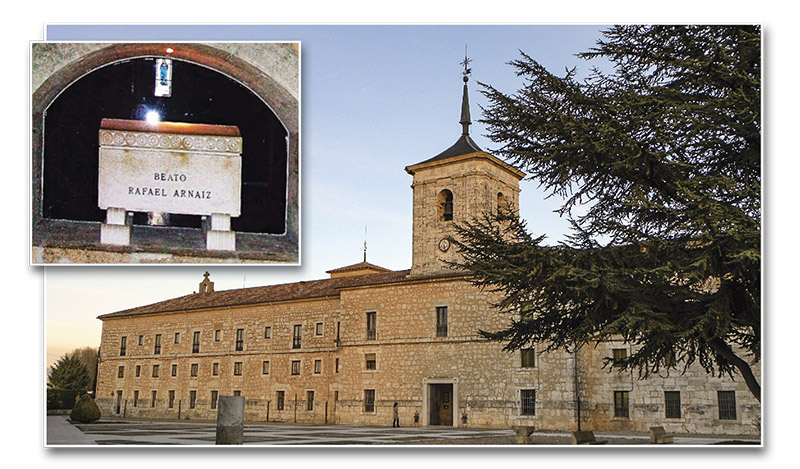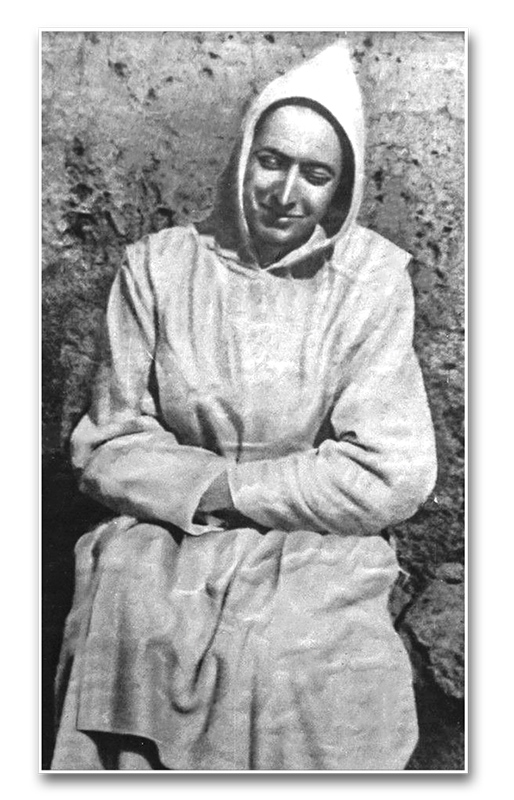The merit of an action does not lie in its difficulty or in the suffering it entails, but rather in the intention with which it is done. The simplest and most commonplace acts take on great value when done for the love of God.
“When will I understand that virtue is not in eating onions, but in eating onions for love of God?”1
Undoubtedly, such a reflection sounds strange to our ears. For how can someone attain sanctity by eating onions or perhaps by peeling turnips? However, this thought was jotted down by a young religious who is venerated as a Saint by the Church. His name is Brother Rafael Arnáiz Barón.
With this phrase, he teaches us that the merit of an act is, above all, in the intention with which it is done.

Holiness is not in external acts
“Intention can radically modify the nature of an act,”2 Catholic doctrine teaches us. Therefore, following on the heels of his first affirmation, the Trappist Saint adds: “Sanctity is not in external acts, but in the internal intention of any act.”3
Acts considered neutral and trivial to human eyes are clothed with immense importance if aimed at the glory of Almighty God. Accordingly, St. Rafael affirms: “Great things are not necessary to be great Saints, it is sufficient to make small things great. […] God can make me a Saint as much by peeling potatoes as by governing an empire.”4
At times we believe that the merit of an action is directly proportional to the difficulty involved in carrying it out or the size of the sacrifice that it demands of us, but those who think so are mistaken. Suffering, in itself, is not the measure of sanctity.
A person can suffer from a serious and painful cancer, being obliged to remain in hospital for days or months, abandoned by those who are dearest to them; but if they do not endure these torments for love of God, they will be of no value to him. Worse yet, if he revolts because of such a situation, these sufferings may even become the occasion of his condemnation.
God accepts our weaknesses as if they were virtues
Therefore, the supernatural value of our actions depends on the intention with which they are done.
The Creator penetrates the interior of each soul and nothing can escape Him, for “man looks on the outward appearance, but the Lord looks on the heart” (1 Sm 16:7). And He rejoices when He sees one of His creatures taking advantage of the little annoyances of life to attain eternal happiness by means of them.
“God is happy with any offering, as long as it is made wholeheartedly.”5 He is pleased to accept even nothingness. Thus, St. Rafael declares: “I offered the Lord my absolute poverty, my empty soul. I endeavoured to sing to Him the hymn of one who can only offer miseries. But it does not matter, for miseries and weaknesses offered to Jesus, by a heart truly filled with love, are accepted by Him as if they were virtues.”6
How many opportunities we have at our disposal to conquer Heaven!

Very little is asked of us to attain Heaven
One day St. Rafael was working in the kitchen when a light suddenly pierced his soul, compelling him to exclaim: “What am I doing, Holy Virgin? Peeling turnips! Why, why do I peel turnips? And his heart, leaping in his breast, spontaneously answered him: I peel turnips for the love of Christ!”7
Then great peace settled in the depth of his soul, accompanied by the following reflection: “The thought that in the world one can make of the least of life’s actions acts of love of God; that the opening or shutting of an eye for His name may lead us to attain Heaven; that peeling turnips for true love of God may give as much glory to Him and as many merits to us as the conquest of the Indies; […] is something that fills my soul with joy!”8
And he concluded: “Actually, very little is asked of us to win Heaven,”9 for, as St. Thérèse of the Child Jesus affirms, God “looks more at the intention than the value of the action.”10
Small acts accompanied by great intentions
Few are those who have the mission of conquering empires for the Reign of God, rare are the vocations destined to guide nations or peoples. But let us not think that because we are not called to such things we are prevented from reaching a high place in Heaven, very close to the Immaculate Heart of Mary and the Sacred Heart of Jesus.
“We are nothing and worth nothing; with the same ease with which we sink into temptation, we soar with consolation upon feeling the lightest touch of divine love,”11 St. Rafael notes.
Let us offer to Our Lord, through the hands of the Blessed Virgin, all our acts, even the smallest, accompanied by excellent and great intentions! They will be similar to the widow’s mite mentioned in Sacred Scripture (cf. Mk 12:41-44). Having cast only two small coins into the Temple coffers, she earned the praise of God Himself and being received into Paradise. She gave everything she had, out of love! ◊







